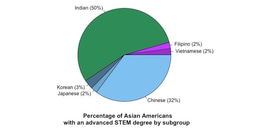Bullying Prevention: From Research to Implementation
Published in Social Sciences

Earlier this month, I attended the European Conference on Developmental Psychology in Turku, Finland. The conference covered infancy to older adulthood and highlighted many current topics in developmental psychology such as language, identity, immigration, stress, and coping. As the conference wound down, I attended a roundtable discussion between researchers and educators on the challenges of evaluating, implementing and sustaining bullying prevention programs.
Inari Harjuniemi from the University of Turku spoke about her experiences working in schools to implement anti-bullying programs. She emphasized how school resources are limited and teachers often enquire about the components of the program that would yield the largest results, as most schools do not have the ability to enact all features of a program. Harjuniemi stated that it would be beneficial for researchers to provide guidance on the core elements for teachers to focus on. She also explained that the needs of schools vary, for example, small village schools have different needs than schools with larger and more diverse student bodies. She suggested researchers provide guidance for schools to help tailor their programs to their individual needs.
Miia Sainio from University of Jyväskylä has worked as a teacher and also as an educator for future teachers. She notes that many teachers feel insecure about handling bullying in their classrooms, which is unsurprising given that most teacher education programs contain little to no curriculum on addressing bullying. For researchers, this means keeping in mind that teachers may lack prior formal training on bullying and are likely to need ongoing support to fully implement their programs.
Niina Rumpa of the Finnish Education Evaluation Centre has evaluated anti-bullying programs that are actively being implemented in Finnish schools. She notes that many schools use multiple programs, which makes it hard to evaluate which programs work in practice. She advises that schools need easy to use materials. When materials are too hard to figure out, the schools modify them themselves or take something from another program. She suggests creating minimal standards of use for programs that emphasize the most important things that should be done.
Representing the researchers were Lucy Bowes (University of Oxford), Chloé Tolmatcheff (University of Groningen), and Kyrre Breivik (NORCE Norwegian Research Centre). Bowes emphasized the need to map out which outcomes need to be assessed to evaluate if and why the program was successful. This should also include potential negative outcomes as some interventions can actually produce unintended harms. Tolmatcheff noted that researchers need to evaluate what happens under various implementation conditions as perfect implementation is rare. Finally, Breivik argued for the importance of coordinating some similar measurement of outcomes across prevention programs to facilitate comparison and improve the evidence base for anti-bullying programs.
Hearing multiple perspectives on the challenges of implementing anti-bullying programs helped to illuminate the difficulties that emerge when programs leave the lab for the classroom.
Follow the Topic
-
Communications Psychology

An open-access journal from Nature Portfolio publishing high-quality research, reviews and commentary. The scope of the journal includes all of the psychological sciences.
Related Collections
With Collections, you can get published faster and increase your visibility.
Intensive Longitudinal Designs in Psychology
Publishing Model: Open Access
Deadline: Mar 31, 2026
Replication and generalization
Publishing Model: Open Access
Deadline: Dec 31, 2026





Please sign in or register for FREE
If you are a registered user on Research Communities by Springer Nature, please sign in